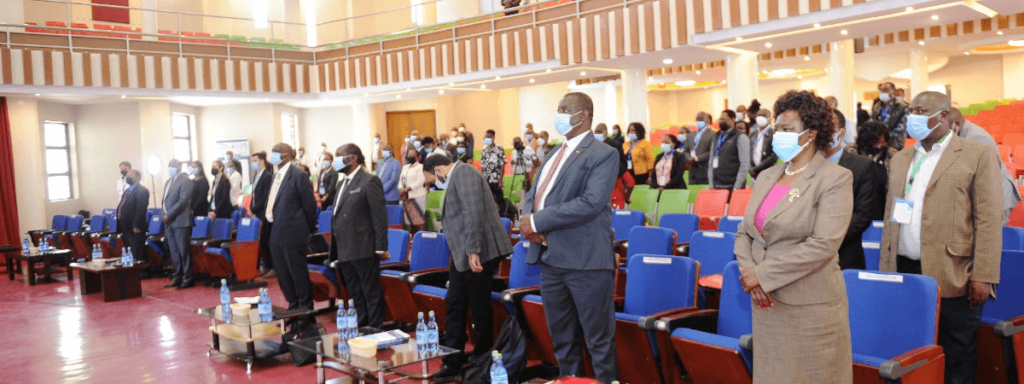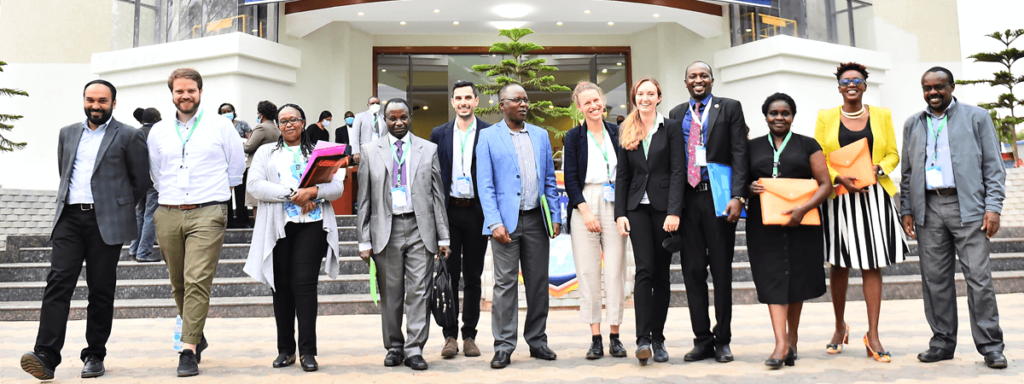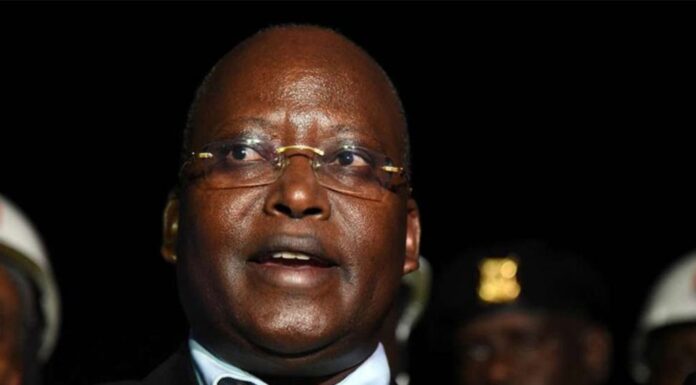Mount Kenya University hosted international conference, which brought together 10 universities from Germany and Kenya. The blended conference that attracted both in-presence participants and virtual participants was held on 7th October 2021 at Mwai Kibaki Convention Centre, Mount Kenya University Main campus, Thika, Kenya. The conference provided a platform through which Collaboration for Entrepreneurial Universities (CEPU) and Developing Entrepreneurial Universities in Kenya (DePUK) projects will disseminate their findings on possible toolkits to creating entrepreneurial universities in Africa as well as demystifying an entrepreneurial university in a dynamic world.
The conference was jointly organized by (CEPU) and (DePUK) with a theme: “Entrepreneurial Universities in Kenya” and will be funded by DAAD and Federal Ministry for Economic Cooperation and Development.
The Keynote speaker was Dr. Kamal Bhattacharya (Professor & Pro-rector Research & Transfer at IU International University of Applied Sciences, Germany, Chief Scientist & co-founder at futurescore and Co-Founder & Education Advisor at Advancity).
Dr. Kamal Bhattacharya in his virtual keynote presentation said that universities need to think beyond the Brick & Mortar model, which is not scalable and sustainable but to embrace online education through large-scale adoption of technologies that is critical for entrepreneurs in the continent amidst global competition.
He called Governments’ polices to be supportive and avoid regulatory and economic constraints. He observed that Africa is a growth market and the university of tomorrow is a cyber- physical ecosystem of learning that needs convergence of community-based learning, mentorship based learning, problem-solving learning and time management. Establishment of collaborations between Kenyan universities and Saarland universities. Innovations using technologies impact life like Mpesa innovation has increased financial inclusion. Entrepreneurship universities should augment the entrepreneurial skills in the curriculum delivery. Entrepreneurship skills also need to be localized.
Host, Prof. Deogratius Jaganyi, Vice-Chancellor. Mount Kenya University, Kenya, a partner University for the Project Collaboration for Entrepreneurial Universities (CEPU) urged the Germany and Kenyan partner universities who are in CEPU and DEpUK to ensure the gains made by these two projects are not lost.
The key feature of entrepreneurial universities is their capacity to explore new ideas on integration of new technology and business practices for socio-economic development. Entrepreneurial Universities create jobs and also train their students on job creation. They get into patenting agreements to create new companies, which ultimately lead to more jobs and wealth creation for socio-economic growth. Entrepreneurial universities also fully embrace university-industry collaborations, community driven outreach programs and seek every available way of being relevant to the community. Prof. JAGANYI said
The conference held participants from Bonn Rhein-Sieg University of Applied Sciences, Leuphana University, University of Leipzig, Wismar University of Applied Sciences and University of Saarland from Germany, Mount Kenya University, Kenyatta University, Karatina University, Chuka University and Dedan Kimathi University of Technology from Kenya.
Some of the delegates who attended include:
- The chief guest Dr. Kamal Bhattacharya, Professor & Pro-Rector Research & Transfer at International University of Applied Sciences, Germany
- Beate Schindler-Kovats , Head of Branch Office, Representative of the DAAD in Kenya, Uganda, Tanzania, Rwanda, South Sudan, Ethiopia and Burundi
- Dr. Vincent Gaitho, Pro-Chancellor/ Vice-Chair, Mount Kenya University Council
- Host, Prof. Deogratius Jaganyi, Vice-Chancellor. Mount Kenya University, Kenya, a partner University for the Project Collaboration for Entrepreneurial Universities (CEPU)
- Prof. Jürgen Bode, Vice-President for International Affairs and Diversity, Bonn-Rhein-Sieg University of Applied Science, Germany
- Vice Chancellors and Representatives of partner Universities for the Project Developing Entrepreneurial Universities in Kenya (DePUK)
- Prof. Paul Wainaina, Vice-Chancellor, Kenyatta University
- Prof. Eng. P. Ndirangu Kioni, Vice-Chancellor. Dedan Kimathi University of Technology, Kenya, and
- Prof. Erastus Nyaga Njoka, Vice Chancellor Chuka University
- Prof. Mucai Muchiri, Vice-Chancellor. Karatina University, Kenya,
- Prof. Peninah Aloo Obudho, DVC AR&SA Karatina University, Kenya
- CEO of Kenya National Commission for UNESCO, a partner to KU and MKU Dr. Evangeline Njoka
- Christine Freitag, CEPU Project Leader, Bonn-Rhein-Sieg University of Applied Sciences, Germany
- Dr. Nida Bajwa, DePUK Project Leader, Saarland University, Germany

About CEPU
CEPU supports the Kenyan partner universities in their efforts to improve the employability of their graduates and to promote the knowledge transfer into society through a stronger professional and practical orientation of the courses offered as well as strong networking with their social and economic environment. To this end, joint reform measures for the labour market-oriented focus of the two Kenyan universities have been conceived and implemented. For instance, CEPU runs Student Training in Entrepreneurship Promotion (STEP) Kenyatta University and Mount Kenya University.
For more information, visit the project website at http://cepu-project.com/
About DEpUK
DePUK supports development of an entrepreneurship ecosystem through need assessment and self-assessment of partner institutions, strategic development geared towards entrepreneurial mindset, exchange programmes, capacity building of faculty and establishment of formats to increase entrepreneurial thinking and acting. The project is run by University of Saarland in collaboration with Chuka University, Karatina University and Dedan Kimathi University of Technology.
For more information, visit the project website at http://www.depukenya.com/
BOTH CEPU and DePUK supports faculty exchange program
The two initiatives are sponsored by the DAAD and Federal Ministry for Economic Cooperation and Development.



















